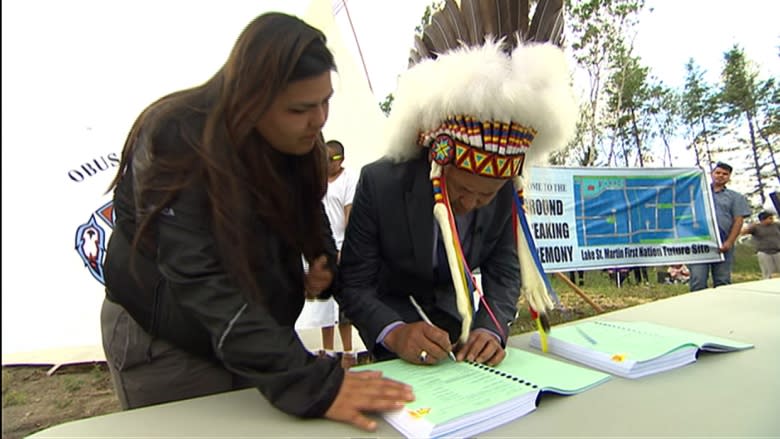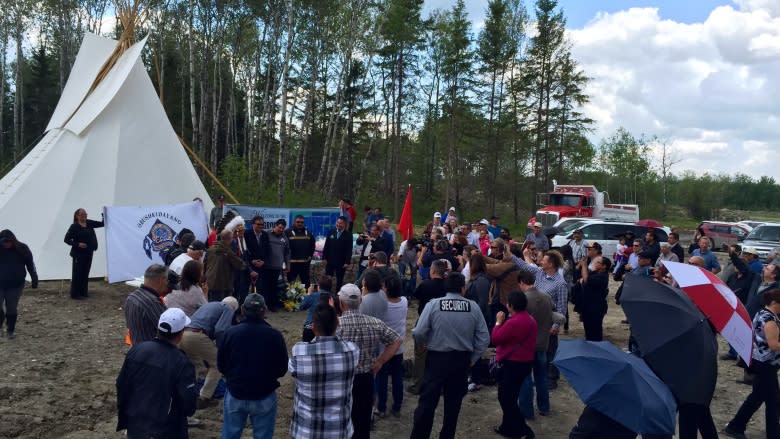Lake St. Martin relocation plans 1 step closer to becoming a reality
Four years after being forced from their homes, construction is about to get underway in Lake St. Martin First Nation as the flood-threatened community gets closer to relocating to a new site in Manitoba.
The province diverted flood water bound for Winnipeg to the north in 2011. As a result, most of the First Nation was washed out.
About 1,000 evacuees have been living in hotels and apartments in Winnipeg since the flood in 2011. Others have been put up by the Manitoba government on a decommissioned military base.
On Monday, Lake St. Martin Chief Adrian Sinclair, the provincial and federal governments held an official groundbreaking event for the new reserve's new location which is near the original community.
The $300 million project calls for 250 new homes and a school.
The province and First Nation reached an agreement on the location in 2013. But everyone involved has acknowledged negotiations for the project, touted as the only First Nation being built from the ground up in Canada, have been challenging.
'Hard times, difficult times'
"It has been complex negotiations. We had some hard times, difficult times," said Sinclair.
"But we managed and stayed and never gave up, the council and I, working for the people — that was our goal when we first got elected, to bring them back home to their national roots."
Manitoba Aboriginal Affairs Minister Eric Robinson also admitted there have been challenges, but added rebuilding an entire community is a difficult process.
"What the public must understand [is] this is not simply sending people back home, which has been the common theme. This is really the issue of a community being rebuilt from the ground up. This is what we're doing here," said Robinson.
"We're sorry it's taken this long. We have a deal now; we can get people back home."
Costs to house the evacuees have ballooned to more than $122.2 million over the past four years.
There have also been accusations the band has mismanaged aspects of the evacuation. In the spring of 2014, some Lake St. Martin residents alleged homes slated for demolition were sold off instead.
Feelings mixed over move
Many from the First Nation, which is about 280 kilometres north of Winnipeg, are looking forward to returning to their home community.
Lake St. Martin resident Betty Traverse said she can't wait to get resettled.
"I'm happy to be going back home," said Traverse, adding she hasn't always felt safe living in Winnipeg.
But not all residents are as enthusiastic about the coming move as Traverse.
Billy Kakewash's home wasn't damaged in the flood, but he was told to leave the First Nation regardless.
Kakewash is currently living in a rental home and said he doesn't plan to return to the new Lake St. Martin.
"There's basically no future there yet," said Kakewash. "It's all talk, just all talk but no action."
Kakewash also maintained the land chosen for the new site is itself flood-prone.
"I think it's money wasted there for the reserve that they're talking about," he said.
"It's all going to go under water again. Why have some place that's going to go under water. Like I said earlier, we should have an urban reserve right close to our community of Ashern."
Construction on roads, ditches and infrastructure is expected to get underway soon. Sinclair said he hopes 33 of the 250 homes will be built by the spring of 2016.
It could take several years before everything is rebuilt. Evacuation costs will continue to mount until the community gets re-established.



